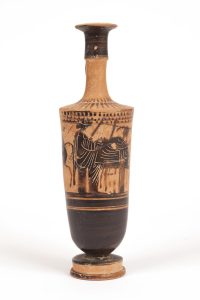 We are looking forward to having lots of undergraduate research collaborators this summer, thanks to University of Reading’s UROP—Undergraduate Research Opportunities Programme. This is an amazing opportunity for our talented undergraduates to get paid for a 6-week experience, usually between their 2nd & 3rd years of study, doing real research alongside their teachers. In each case the research should result in academically rigorous published outputs. Classics benefits most years from this opportunity, but competition is stiff, both for getting the project funded and for choosing the lucky student from among those who apply. This year we have secured funding for three of our projects, namely:
We are looking forward to having lots of undergraduate research collaborators this summer, thanks to University of Reading’s UROP—Undergraduate Research Opportunities Programme. This is an amazing opportunity for our talented undergraduates to get paid for a 6-week experience, usually between their 2nd & 3rd years of study, doing real research alongside their teachers. In each case the research should result in academically rigorous published outputs. Classics benefits most years from this opportunity, but competition is stiff, both for getting the project funded and for choosing the lucky student from among those who apply. This year we have secured funding for three of our projects, namely:
Athenian Festival ware in the Ure Museum. Collect and analyse examples in Reading’s Ure Museum of Greek Archaeology of black-figure ceramics created and used as festival ware in ancient Athens, as a testbed for a larger project—Immanence and Innovation—amassing and analysing evidence of such ceramics from international collections. Now open to 1st year students, updated deadline for applications is 22-May-2023.
In the Company of Monsters: New Visions, Ancient Myths. This project uses contemporary visual art to investigate the power of ancient mythology to engage modern audiences and to explore contemporary themes of identity and diversity. The student will research and create inclusive text to accompany a research-led exhibition at Reading Museum.
Public interactions with Lowbury Hill. Working under the umbrella of the Mymerian project (https://research.reading.ac.uk/mymerian/) we seek to gather, analyse, and interpret trends in modern and contemporary public perceptions of the archaeology and history of Lowbury Hill, Oxfordshire, through research in archives and print media.
Interested 2nd year students are encouraged to peruse the UROP placements available this year: indeed students are encouraged to apply to UROPs from other departments, if they have the right skills and knowledge. The main UROP page and the pages for each project indicate the application procedure, but all applications from interested students are due before 3 April 2023 (Athenian Festival ware UROP application now open until 22-May-2023)




